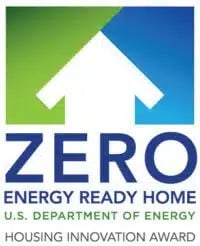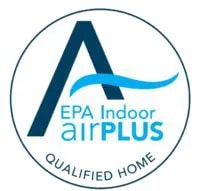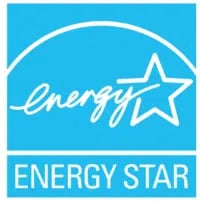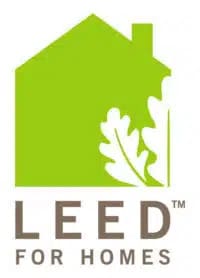Building, owning, and living in a green home built by BPC is not only good for the environment, it’s also very good for your bottom line.
Unfortunately, there is a lot of misinformation about the economic benefits you may hear. Some of it is based on old, outdated information. Other myths are just plain wrong.
A few examples:
Myth: Building a high-performance green home always costs a lot more than building a conventional home.
Fact: BPC Green Homes can cost about the same as a conventional, quality-built custom home. Both can cost a little or a lot more if you decide to add on extras.
Myth: Investing in a green home provides you with little to no real economic benefit.
Fact: The economic benefit of building a green home today can be dramatic when you consider the reduced operating and maintenance costs over the life of the home.
Myth: It takes a long time to get a decent return on your investment when building a green home.
Fact: With today’s high cost of energy and maintenance, your return on investment will be larger and faster than ever before.
The reality is that today it really pays to build, own, and live in a green, high-performance home.
Here are just some of the ways building and owning a high-performance green home makes a great deal of economic dollars and sense!
How Does a Green Home Save You Money on Energy?
Green homes use and waste less energy than traditional homes. This is accomplished in a number of ways, including:
- High levels of insulation and air sealing that dramatically reduce energy loss
- Energy efficient heating and cooling and hot water systems as well as high efficiency appliances
- Solar photovoltaic systems that generate free, clean energy
- Home design that maximizes passive solar energy
Energy Cost Savings
A green home meeting the EPA’s ENERGY STAR for New Homes requirements is designed to save up to 30% on energy costs. The newer DOE Zero Energy Ready Home program builds upon the ENERGY STAR standard to increase efficiency and savings. DOE Zero Energy Ready Home requirements are the minimum standards to which BPC builds.
The Passive Homes (PHIUS) BPC builds can reduce your energy use even more by optimizing the insulation and air sealing levels for the specific climate zone in which you live.
Beyond Energy Savings to Net Zero Energy Cost (Or Even Profit)
Net zero homes are designed to generate enough clean energy, most often through the use of solar photovoltaic systems, to completely offset the power you may draw from the grid.
In some areas of the country, clean power that homeowners generate can be sold to the power company, and the power company must buy the power. At the moment, power companies in our area only credit you up to the cost of power you draw from them. But future changes in our area’s regulations could lead to you being able to actually generate income from your home’s clean energy production.
How Can You Save on Green Home Building Costs?
Green building methods don’t always cost more. In fact, some methods reduce the cost of home building. Green homes sometimes require less framing materials and associated labor costs than conventional building practices. High-performance heating and cooling systems can be smaller and less expensive.
Some green homes can cost more to build than some conventional homes. But the marginal increase in building cost is very often for the components that further increase the longer-term savings from reduced maintenance and energy use. This means your marginal investment is repaid quickly and you start reaping the ongoing savings they provide even sooner.
Homeowners taking out mortgages should look at PITIE (Principle, Interest, Taxes, Insurance, Energy) instead of using the old PITI (Principle, Interest, Taxes, and Insurance) when figuring their monthly costs. With the PITIE method, the energy savings is factored in so your PITIE often can be less than the PITIE of a conventionally built home, even factoring in the additional cost to build a green home with solar panels and the additional insulation and high-performance systems.
BPC Green Homes Have a Lower Cost of Ownership
The green building and building science practices BPC employs include using more durable, longer-lasting building materials and assemblies. This all results in less time, effort, and costs to maintain. They also need to be replaced less often, if at all.
The way BPC builds homes minimizes costs associated with managing mold, mildew, and moisture problems. Our homes are built to manage both interior and exterior moisture when operated and maintained properly.
We very carefully design and size heating and cooling systems so they don’t constantly cycle on and off. Excessive on/off cycling is a major cause of more frequent repairs and premature system failures that require system replacement. This also increases efficiency, comfort, and moisture removal during the cooling season.
BPC Green Homes Have Improved Resale Appeal and a Higher Return on Investment
A study by Zillow shows that in the New York City area, green homes with solar panels sell for 5.4% more than comparable non-green homes. The percent increase in resale value varies across the country.
In general, the return on investment in green homes is generally higher than the ROI on conventional homes. The longer you live in a green home, the higher ROI you will have compared to a comparable non-green conventional home. Green homes will have more and more appeal to future home buyers and so, logically, will sell at higher prices and before homes that aren’t.
Healthier Homes Can Provide Additional Economic Benefits As Well
BPC homes are built to be healthier to live in. For some people with certain conditions, living in a healthier home may result in helping to reduce a variety of expenses related to those conditions. For example, for people with breathing problems, certain allergies, or chemical sensitivities, living in a healthier home may help reduce the frequency and severity of medical events that require medication, treatments, and extra trips to the doctor or ER. Beyond those ways you may see a financial benefit, missing fewer days of work and your kids missing fewer days of school (which may result in you missing fewer days at work) should be considered.












